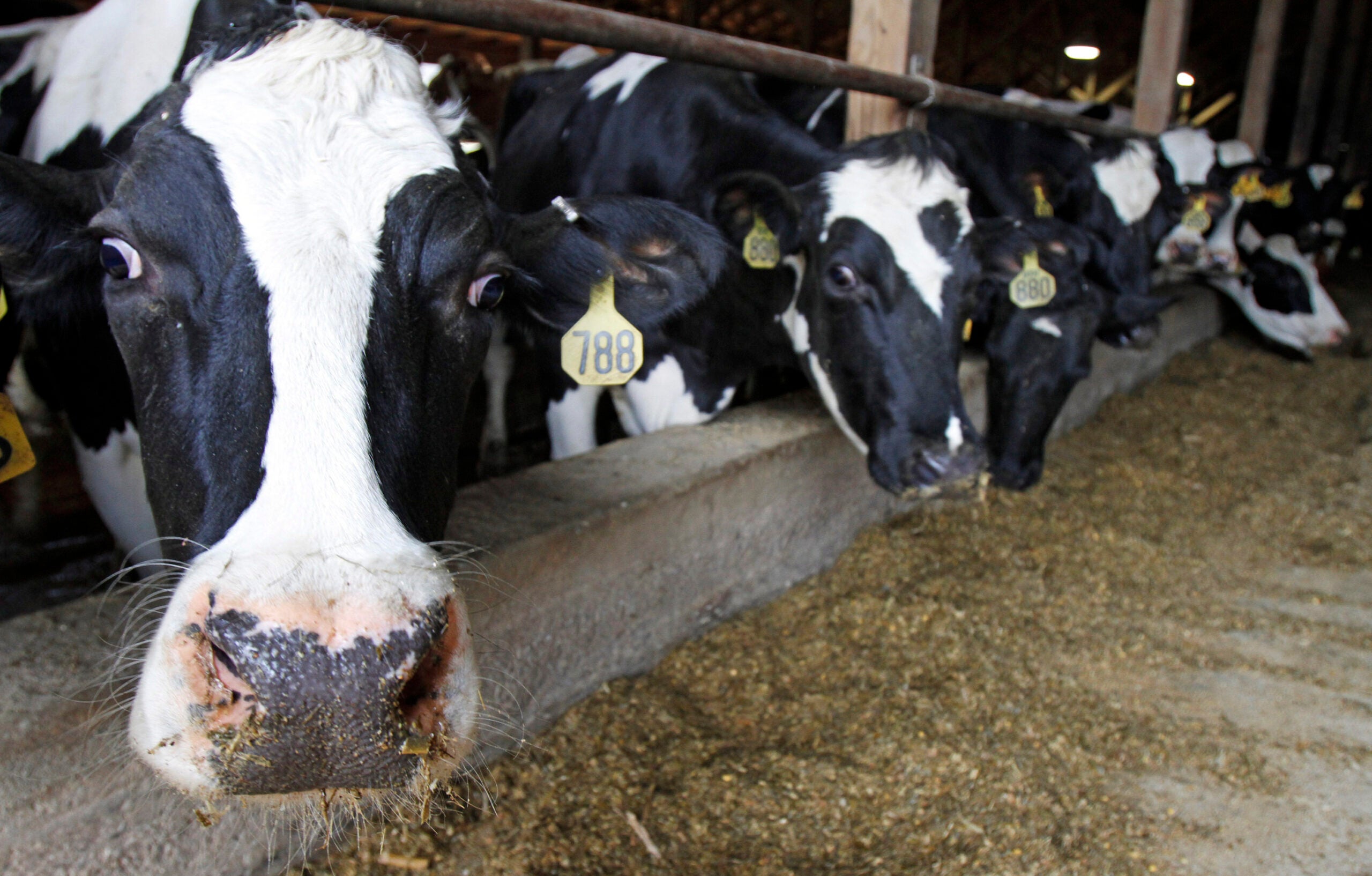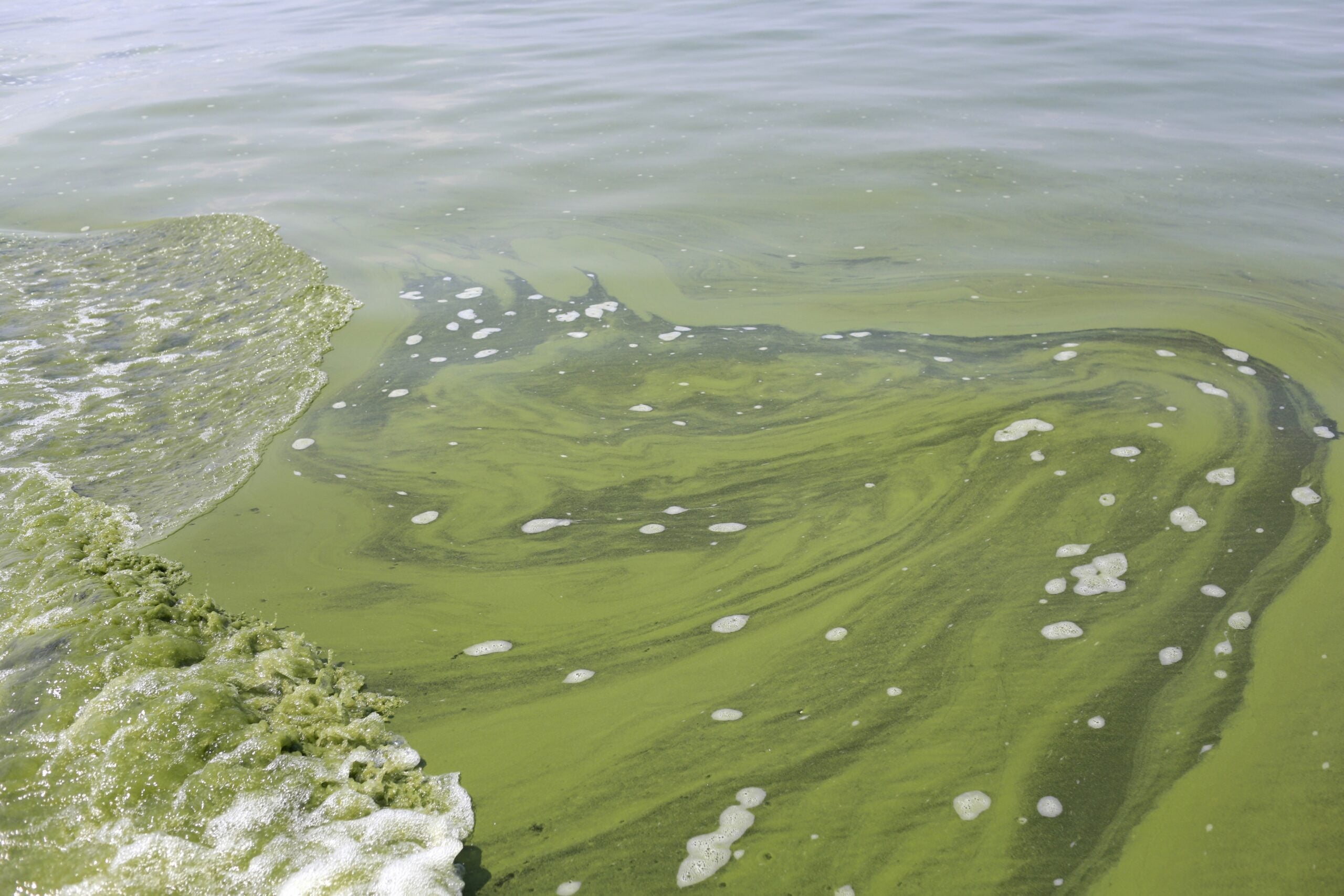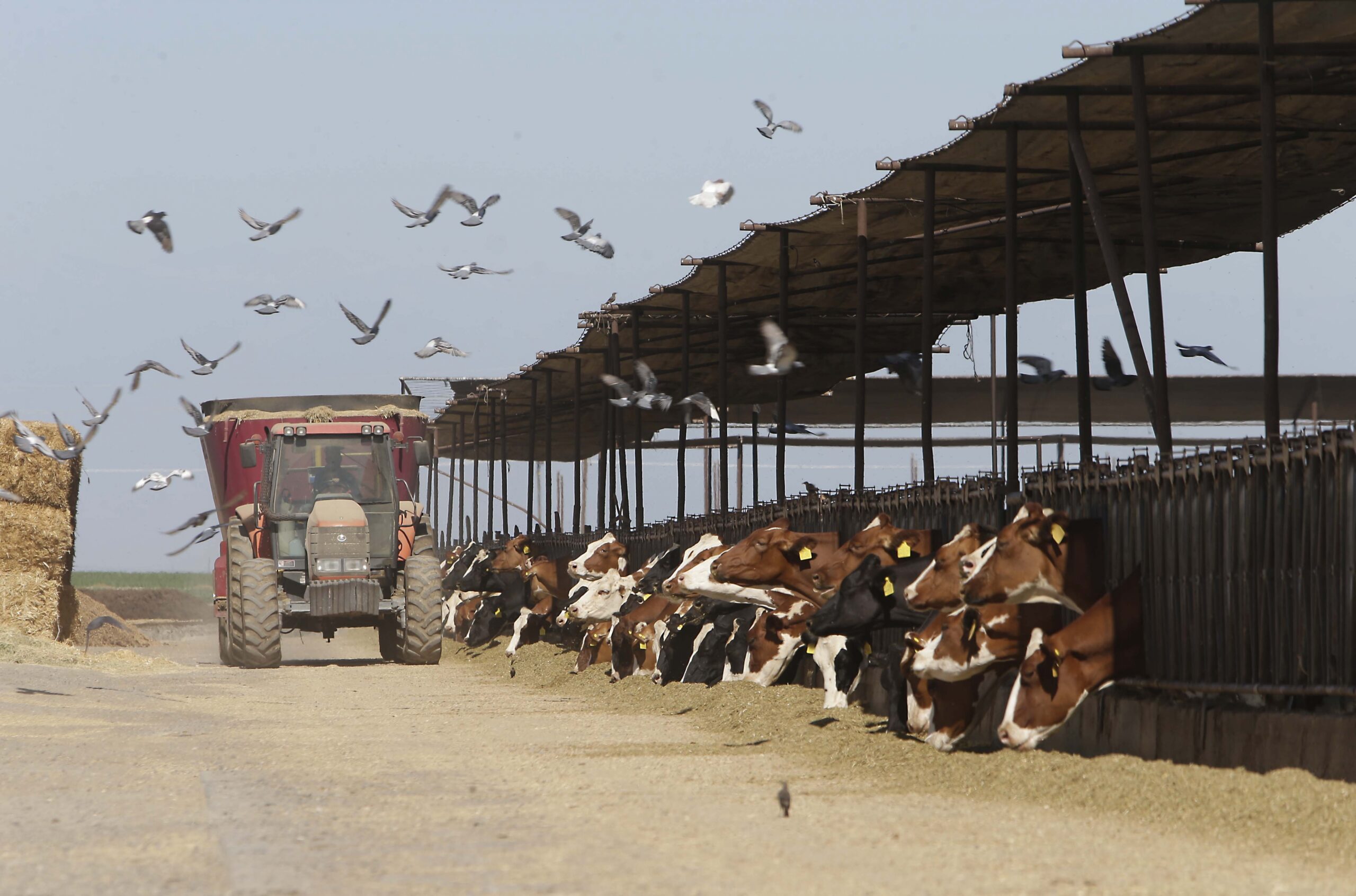The Wisconsin Supreme Court is being asked to consider two cases that could determine whether the state Department of Natural Resources has authority to place certain limits on agriculture in order to protect the quality and quantity of groundwater.
A state appeals court has certified two cases for consideration by the state’s highest court.
The first, has to do with an application made in 2012 by Kinnard Farms Inc., located in the Town of Lincoln, to double the number of cows on its properties to include more than 6,000 animals.
News with a little more humanity
WPR’s “Wisconsin Today” newsletter keeps you connected to the state you love without feeling overwhelmed. No paywall. No agenda. No corporate filter.
The second case has to do with a series of high-capacity well applications made by farmers in the state’s Central Sands region between 2014 and 2015.
In both cases, the overarching question is whether a state law passed in 2011, known as Act 21, overrules a prior state Supreme Court action known as the Lake Beulah decision issued in 2011. Justices stated in the Lake Beulah case that the DNR was able to consider cumulative impacts on groundwater when considering new high-capacity well applications.
Act 21 states agencies like the DNR can’t create regulations, rules or other requirements for permitees or those seeking permits unless they’re specifically laid out in state statute. Attorneys for the DNR have argued the law overrules the previous Supreme Court decision and therefore, the agency doesn’t have authority to limit the number of cows on the Kinnard Farms properties or require groundwater monitoring wells to measure whether manure from the farm is leaching into groundwater.
Similarly, the DNR has argued Act 21 bars them from considering cumulative impacts for the high-capacity wells sought by farmers in the Central Sands region.
Justices from the state’s high court haven’t said whether they’ll take up the cases, but their rulings on the matters could have wide ranging impacts on how the state regulates business.
Evan Feinauer, a staff attorney for environmental law firm Clean Wisconsin, which is a petitioner in both cases, said the DNR’s responsibility to regulate groundwater contamination from manure could be hamstrung if the high court sides with Kinnard Farms.
“So, that’s why it could have pretty widespread impacts because we know, of course, that there’s groundwater pollution problems, not just in Kewaunee County, but in southwest Wisconsin and really a bunch of areas of the state,” he said.
A statement issued by Kinnard Farms said the family will continue to focus their energy on producing “safe, high-quality, nutritious milk while continuing to go the extra mile to protect our precious land and water resources.”
“Kinnard Farms views this as a purely procedural development, and looks forward to the case moving toward an efficient and clear resolution. Kinnard Farms continues to believe that its and the State of Wisconsin’s legal position is correct, and that it will ultimately prevail,” the statement said.
Feinauer said having a potential Supreme Court ruling on the high-capacity well case is equally important to whether the DNR and other state agencies have authority to regulate businesses in Wisconsin.
“Based on the way that they approach it would mean that DNR can’t discharge its duty to Wisconsin residents and that’s just an unacceptable result,” said Feinauer.
In 2016, attorney David Crass, of the law firm Michael Best Strategies in Madison, which represented the high-capacity well owners in the cases that led to the Lake Beulah decision, wrote a blog post posing a question on behalf of DNR permitees around the state.
“As Wisconsinites grapple with regulatory agencies, as permits are issued, renewed and processed, as regulatory determinations are made that impact your business or operations, ask the following question: Is there a statute or rule that explicitly authorizes or requires the agency to impose the requirement? The answer may be ‘none,’” wrote Crass. “As all change takes time, be advised that the limitations of Act 21 are alive and well, but only if the regulated community demands adherence to the law.”
DNR officials didn’t respond to a request for comment on this story.
Wisconsin Public Radio, © Copyright 2025, Board of Regents of the University of Wisconsin System and Wisconsin Educational Communications Board.






